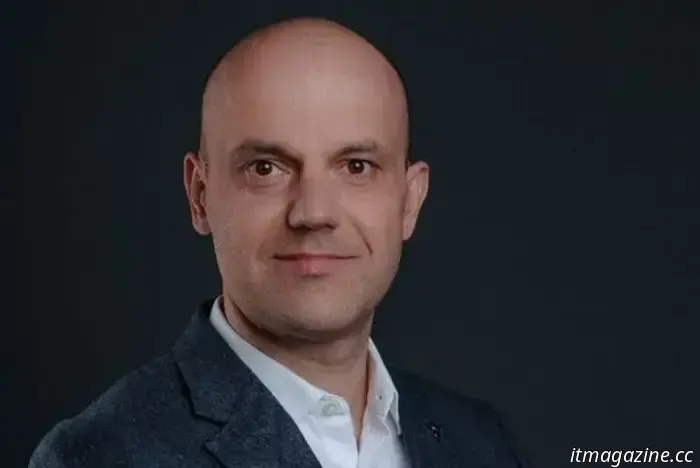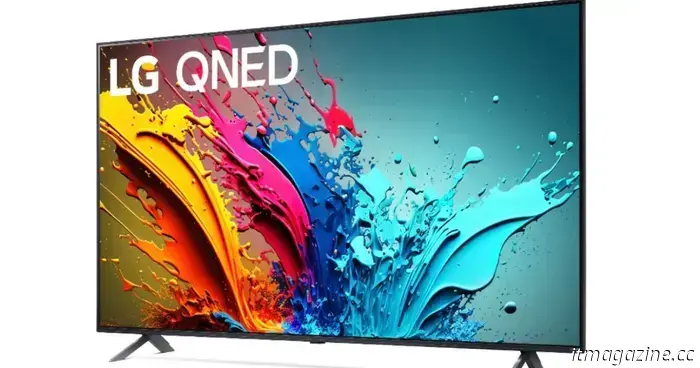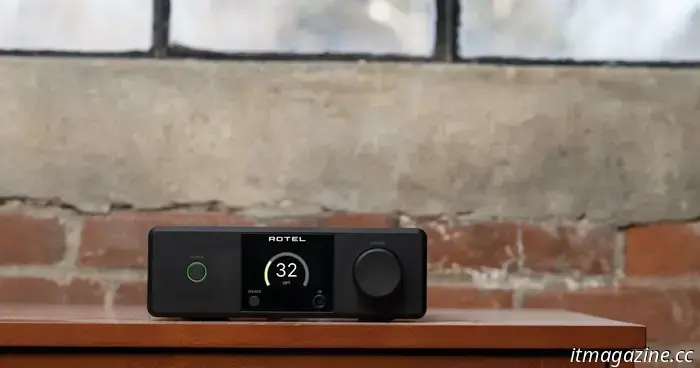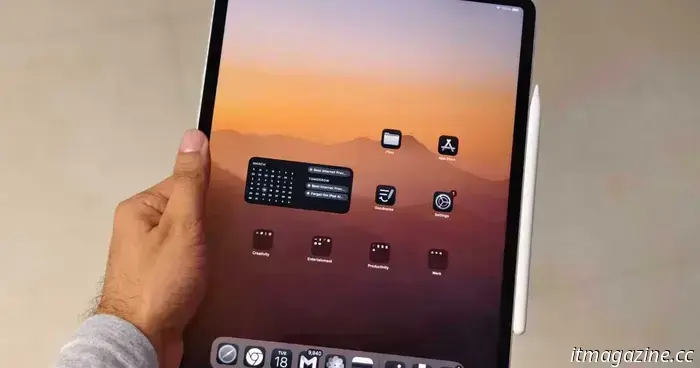
If you don't have enough hands: prosthetics with smartphone settings
In Russia, high-tech prosthetic hands are mass-produced with the ability to adjust via a smartphone and many types of grips.
The IT-World managed to learn about this at the presentation of two models of new brushes and cloud software from MAKSBIONIK. The event was held as part of the Integration exhibition at the Timiryazev Center.
According to the American Advanced Amputee Solutions, more than 1 million limb amputations are performed every year in the world. 80% of this number is accounted for by legs and 20% by hands. Given the current geopolitical situation, there is no reason to expect a decrease in demand.
The MAKSBIONIK project has two co—founders, Maxim Lyashko and Timur Sayfutdinov. In 2023, the METIZ group of companies acquired 59% of MAKSBIONIK shares.
Timur Sayfutdinov, CEO and Founder of MAKSBIONIK and Alexander Orlov, CEO of METIZ IMPEX
MeHandA is the only brush with a touchpad for switching grips. It allows you to change them without using a phone, just on a prosthesis. For example, for a person with a double amputation, it is enough to swipe the touch screen on any surface, even on clothes, to switch to the desired grip. The grab generator is also one of the unique features of MAXBIONICS, which no one has at all. It allows you to create an individual grip (i.e., an active action) with muscle signals.
Another distinctive feature is the Touch Screen function on the little finger. MeHandA's brush has a tactile little finger, which is coated with a special coating that allows it to work with touchscreens of smartphones, tablets, etc.
Usually, a person will scroll the ribbon with their index finger. But to do this with a prosthesis, the user must first turn on a certain trigger, then turn the brush, turning it palm inwards, make a certain grip with his index finger and only then swipe his finger across the screen. Aesthetically, it may look beautiful and familiar, but the functionality suffers because a person's time and effort are wasted. Add to this that many manufacturers have a fixed wrist, has a tight passive rotation, and many hands do not have flexion (flexion). And when you have your little finger with the Touch Screen function in the same position as you usually work, and how our hand is anatomically positioned, then you can move your finger and swipe on the touch screen.
Many greenhouses (people with double amputation of hands) have never told manufacturers that this is a really big plus. The steel frame and the second titanium phalanges allow a person with a MeHandA hand to hold a load weighing up to 20 kilograms with a fully clenched fist. One cannot but say that MeHandA has an aesthetic appearance of the fingers and the hand itself, close to the human anatomy.
With the Mehand brush in a small size, MAXBIONIK reaches a new audience – teenagers and young people. This is the fastest brush available on the market today. It has 32 types of grips / gestures (22 grips / 10 gestures), a touch screen, a grip generator, a "spring-loaded" four fingers for safe bending when the backs of the fingers accidentally touch the surrounding surfaces, and a touch-sensitive little finger. At the same time, the weight of the brush is less than half a kilogram.
MeHandB is a budget version of the flagship MeHandA brush. An affordable multifunctional brush on the Russian market, which has 6 independent motors – for flexion/extension of fingers and for rotation (rotation). It is suitable for people who are learning prosthetics for the first time. Intuitive, easy to use.
It often happens when the user is offered the simplest "one-finger" prosthesis - a three-fingered prosthesis, which is difficult to get used to when it comes to young people. This is an outdated format, which is being replaced by such simple and at the same time functional bionic brushes as MeHandB. It has 28 types of grips/gestures, as well as the most powerful compression force currently on the market in Russia.
MeHandB's fingers bend independently of each other, which allows the user to pick up any cylindrical or three-dimensional objects, such as a ball, apple, potato, cup, etc. Switching between contractions/gestures can be done using muscle triggers and the on/off button. It is available in one size "S" and black color. It has a grab generator, despite the budget cost.
Alexey Alexandrovich Volodin, Deputy Head of the Department of Labor and Social Protection of the Population of Moscow
It is clear that such complex devices, manufactured individually, cost a lot of money for an ordinary person (from about 3 to 11 million rubles per copy). Almost all of them are paid for by the state, but Alexey Alexandrovich Volodin, Deputy head of the Department of Labor and Social Protection of the Population of Moscow, who attended the presentation, said that in each specific case, the issue of the appropriateness of allocating a prosthesis is decided individually by a group of specialists, which includes a rehabilitologist, psychologist, etc. In addition to the cost, the limitation is the production capacity: at the moment, 30-40 copies are transferred to users every month. Considering that the lifetime of such devices is 2-3 years, and in the future either maintenance or replacement is required, this is very small. But the fact that modern prostheses are already being produced in Russia, which are not inferior in functionality and quality to German and British ones, is a huge achievement. I really want to believe that the number of devices produced will increase.
Read also
Ivan Novoselov: How Data Governance is changing business. Cases and insights
In today's world, organizations are increasingly facing growing challenges: the abundance of data sources, the need to quickly extract information from data in the interests of business, the lack of a unified data management process, and the constant shortage of IT specialists. In this interview, IT-World spoke with Ivan Novoselov, CEO of DataCatalog (part of the Arenadata Group) about whether the Data Governance system is a necessity for business and what opportunities it opens up for companies to grow.
Other articles
 Murderbot trailer: Alexander Skarsgård plays a rebellious security robot in the Apple TV+ series.
In the trailer for Murderbot, a new sci-fi series on Apple TV+, Alexander Skarsgård portrays a rebellious security robot.
Murderbot trailer: Alexander Skarsgård plays a rebellious security robot in the Apple TV+ series.
In the trailer for Murderbot, a new sci-fi series on Apple TV+, Alexander Skarsgård portrays a rebellious security robot.
 Hurry, limited time offer: Get $800 off on an LG 75-inch QLED TV!
The LG 75-inch QNED85 Series 4K QLED is now on sale for $1,000. It’s finally time for your living room to have the large screen it has been needing all this time.
Hurry, limited time offer: Get $800 off on an LG 75-inch QLED TV!
The LG 75-inch QNED85 Series 4K QLED is now on sale for $1,000. It’s finally time for your living room to have the large screen it has been needing all this time.
 HBO has renewed The Last of Us for a third season before the premiere of the second season.
More clickers are on the way. HBO has officially renewed the popular series The Last of Us for a third season. This announcement arrives just before the premiere of season 2.
HBO has renewed The Last of Us for a third season before the premiere of the second season.
More clickers are on the way. HBO has officially renewed the popular series The Last of Us for a third season. This announcement arrives just before the premiere of season 2.
 The DX-5 by Rotel could be the compact and connected stereo amplifier you need.
Rotel's latest DX-5 stereo integrated amplifier boasts a sleek and compact design, equipped with HDMI ARC, Bluetooth aptX HD, and delivers audiophile-quality sound.
The DX-5 by Rotel could be the compact and connected stereo amplifier you need.
Rotel's latest DX-5 stereo integrated amplifier boasts a sleek and compact design, equipped with HDMI ARC, Bluetooth aptX HD, and delivers audiophile-quality sound.
 Aqara is "fully dedicated" to Matter and has announced support for 50 additional device types.
Aqara is introducing Matter support for 50 additional device types.
Aqara is "fully dedicated" to Matter and has announced support for 50 additional device types.
Aqara is introducing Matter support for 50 additional device types.
 You might be able to fold your iPad as early as next year.
The iPad Fold, as it is referred to, may debut as early as next year. However, a recent report indicates that the initial folding iPad might not launch until 2026. This new device is said to measure an impressive 18.8 inches when fully extended. Additionally, there are indications that it will be accompanied by […]
You might be able to fold your iPad as early as next year.
The iPad Fold, as it is referred to, may debut as early as next year. However, a recent report indicates that the initial folding iPad might not launch until 2026. This new device is said to measure an impressive 18.8 inches when fully extended. Additionally, there are indications that it will be accompanied by […]
If you don't have enough hands: prosthetics with smartphone settings
In Russia, high-tech prosthetic hands are mass-produced with the ability to adjust via a smartphone and many types of grips.
